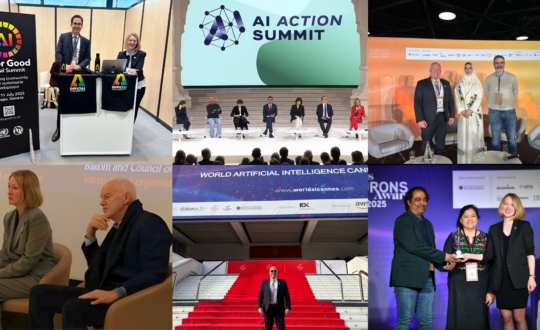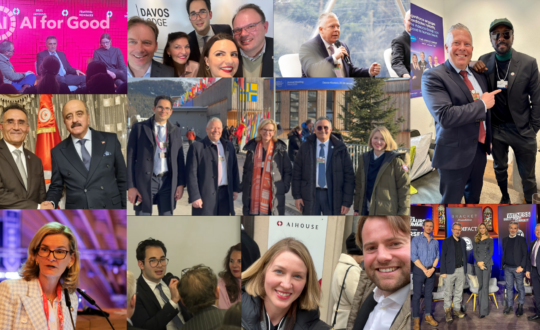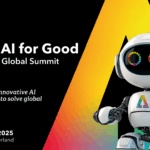The AI for Good Global Summit 2024, held in Geneva, brought together leaders and innovators from various sectors to discuss the transformative potential of artificial intelligence (AI). Among the distinguished speakers was Sasha Rubel, Head of Artificial Intelligence/Machine Learning, Public Policy, EMEA for Amazon Web Services (AWS). Rubel shared valuable insights into how AWS and their customers leverage AI to meet the Sustainable Development Goals (SDGs), the importance of responsible AI practices, and the future of AI in society.
Rubel began by discussing how AWS customers are using AI to advance the SDGs in various ways. Examples include advancing vertical farming to reduce hunger, mitigating gender bias in job postings, and quantifying speaking time in media for gender equality. She also emphasized AI’s transformative impact in healthcare, enabling personalized medicine and advancing clinical research. Additionally, Rubel highlighted AWS’s collaboration with the University of Padova on personalized education using generative AI and mentioned efforts to help households manage energy consumption and access affordable renewable energy.
Addressing the significance of responsible AI, Rubel underscored that responsibility is ingrained in AWS’s core values.
“For us, responsibility is seen as the responsibility of all the actors inside our company,” she stated.
AWS employs a four-pronged approach to make sure that responsible AI principles are reflected in their services and in their support to their customers operationalizing principles, promoting diversity, providing education, and advancing research.
The first cornerstone involves focusing on operationalizing principles like transparency, explainability, accountability, and privacy. Rubel explained that AWS spends a lot of time transitioning from principles to practice and providing operational guidelines on how these can be embedded in their services.
Diversity is another key focus area for AWS. Rubel pointed out that diverse teams drive innovation and yield higher returns, mentioning that their team includes philosophers, lawyers, and ethicists, and that they emphasize equity between men and women as well as diverse backgrounds. This diversity ensures a holistic approach to AI development and deployment.
Education is also crucial for responsible AI. To this end, AWS launched the AI Ready Commitment, offering over 80 online classes to equip individuals with the knowledge and skills needed to understand and develop AI responsibly.
“We make sure that individuals inside our company, […] our customers, and also citizens more broadly are equipped with the education and skills necessary to understand what AI is as a technology, but also how to develop and deploy it responsibly,” Rubel explained.
Lastly, for AWS, research plays a pivotal role in advancing responsible AI.
“The field of AI is transforming at an unbelievably rapid pace, and we acknowledge that there are emerging risks and issues that come up with generative AI,” Rubel noted.
To tackle these challenges, AWS focuses on fostering cooperation between industry, civil society, and academia to advance the science behind responsible AI.
Discussing the long-term impact of AI on society, Rubel expressed confidence that AI will transform our life, including how we collaborate to meet the SDGs.
“We are convinced that AI will transform every dimension of society,” she stated.
A recent AWS-commissioned report found that citizens around the world believe AI will significantly impact health, education, gender equality, and poverty reduction over the next five years.
Rubel identified three key blockers to AI adoption: regulatory uncertainty, lack of digital skills, and the adoption gap between large and small companies. She pointed out that the lack of regulatory clarity hinders AI adoption, with companies planning to invest up to 48% less over a three-year period due to this uncertainty. To overcome this barrier, AWS supports regulatory frameworks such as the G7 code of conduct and initiatives by the UN and OECD.
The second blocker is the lack of digital skills. Rubel reported that 61% of businesses cited this as a barrier to AI adoption and that employees expressed a desire to learn new skills but found classes too expensive and lacked the time. AWS’s commitment to providing accessible, self-paced learning aims to bridge this gap and empower employees to learn new skills.
The third blocker is the adoption gap between large and small companies, with 51% of large companies adopting AI compared to 31% of smaller companies. To address this challenge, AWS focuses on supporting startups and the innovation community with the tools necessary to innovate with AI.
Concluding the interview, Rubel underscored the transformative potential of AI and the importance of overcoming barriers to its adoption. Her insights at the AI for Good Global Summit highlighted AWS’s commitment to leveraging AI for societal benefit, focusing on responsible practices, diversity, education, and research. By addressing key challenges and promoting innovative solutions, AWS aims to harness AI’s power to benefit society at large.














